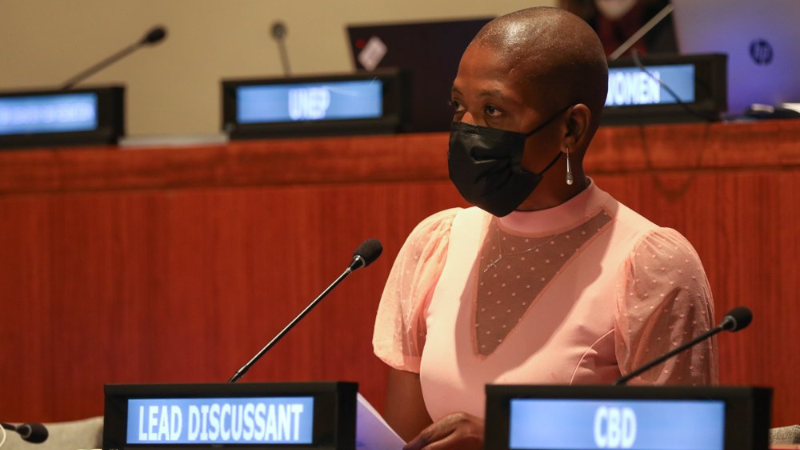On 11 July 2022, Ms Tamisha Lee, President of Jamaica Network of Rural Women Producers and a member of the WFO Women Committee, addressed on behalf of the Farmers’ Major Group the United Nations 2022 High-level Political Forum 8th meeting: “Small Island Developing States: Building back better in vulnerable situations”.
The event focused on COVID-19 effects in Small Island Developing States (SIDS) and how vulnerability to shocks combined with low resilience can have a severe and long-lasting detrimental effect on economic growth and sustainable development.
COVID-19 pandemic reminded us that shocks have economic, social and environmental impacts, are often interconnected, and that structural factors lead to high sensitivity and exposure to exogenous shocks.
While national policies are responsible for mitigating the consequences of exogenous shocks and making the country more resilient, history has shown how exogenous shocks of various origins threaten economic growth and human development. Therefore, the fight against vulnerability must be at the heart of international policy that supports SIDS (and other vulnerable developing countries).
In this framework, Ms Tamisha Lee brought the perspective of the farmers of the world into the debate.
Here are some inspiring messages from her statement it is worth remembering:
-
COVID-19 has highlighted the fragility of our food systems and how we are all interconnected as people living on an increasingly fragile planet. This is a reality, especially in SIDS, like Jamaica, which is small and uniquely vulnerable to external shocks.
-
SIDS accounts for 60 million inhabitants and produces only 1 per cent of CO2 emissions. Agriculture in the broadest sense, including fisheries, contributes significantly to their economic sector, with most farmers being small-scale and family farmers.
-
Nevertheless, SIDS face enormous challenges including limited arable land, fragile natural environments, heavy reliance on food imports, geographic isolation, lack of infrastructures, and difficult access to global markets.
-
SIDS in the Caribbean, the Pacific, the Atlantic and Indian Oceans rely heavily on food imports, with 50 % of SIDS importing more than 80% of their food and nearly all SIDS importing 60 % of their food.
-
Challenges have been increasing over the past few years due to climate change effects and related disasters (sea-level rise, ocean acidification, hurricanes and storms, coastal erosion, biodiversity loss, and changes in rainfall patterns, among others).
-
An evidence-based Multi-Dimensional Vulnerability Index (MVI) can help to provide more data and a better understanding of the challenges affecting SIDS. The issue is how to concretely and effectively translate these data into effective actions that can truly foster sustainable development in SIDS.
-
Farmers and rural communities play a significant role in shaping Sustainable Food Systems. They stand at the heart of any process related to ending hunger and malnutrition and preserving the ecosystems, making them primary custodians of the environment.
-
Farmer-driven public policies and investments should be put in place to drive sustainable agriculture in SIDS (i.e., climate-smart practices, organic agriculture, and responsible fisheries, among others) to boost the potential of the farming sector to contribute to ending poverty, fighting climate change as well as ensuring food security and nutrition.
